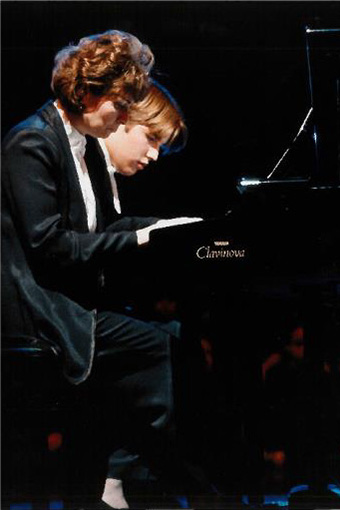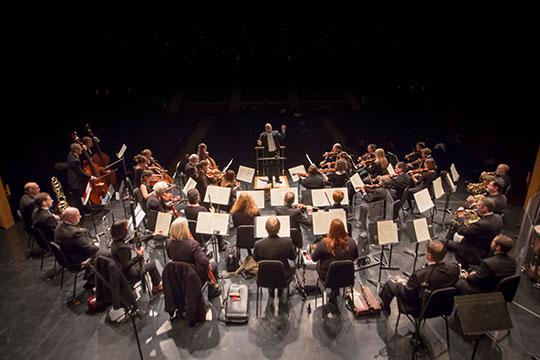Enjoying Music is a Part of Who We Are as Humans.
(Part 1)
Kevin Zakresky / Conductor
The Joy of Sharing in a Collective Soul.
For Kevin Zakresky, a conductor first introduced to his profession by a college professor, the beauty of conducting lies in creating music together and sharing in a collective soul. Kevin has spent his entire career savoring the joy of living with what he loves most in the world. We asked Kevin what music means to him.
Piano is my lifetime form of expression.
Piano was my first encounter with music. My twin brother and I started taking lessons at the age of 6 or 7. My mother was determined that we grow up with music. Though our family was not well off in those days, she found the money to purchase a second-hand piano. Even that, a dilapidated old piano, was a great expense. From the very beginning, I couldn’t stop myself from playing. My brother was less beguiled: he lost interest fairly quickly and moved on to video games.
I’m known in the music world for my conducting, but I still love piano and play it sometimes as I teach or conduct. I lack the technical skill to play, let’s say, a piano concerto with an orchestra, but the instrument is still a very important form of expression for me as a professional conductor. Piano is my voice, the way I speak.

performing with his piano teacher at the opening ceremony of a local music festival.
There is a joy in singing and in conducting, of everyone sharing in the same music.
I turned to other forms of music upon entering university in Vancouver, branching out from my long-held devotion to the piano. There I was drawn to singing in operas and choirs –the act of creating music together– and had the good luck to meet many wonderful musical peers. Operas and choirs didn’t replace piano, they were just more music in my life. It was the same for my next step, conducting. My professor recommended choir, then opera, then finally conducting for an orchestra. As far as I was concerned, none of these other musical activities were “steps away” from the piano.
Conducting felt good, somehow right for me, from the very first time I stood at the podium. I’d always been good at leading in things like debates at school or getting groups to come together. I had also noticed that many conductors had this ability to prioritize issues and solve them one by one. It soon became clear to me that I had this ability, as well. Of course, you have to be able to read the score and understand how the music will unfold, which I was able to do.
This may sound strange, but I also went into conducting with a sense of duty. I was good at it, I found, and no one else was around to take charge. I was the best man for a job no one else was going to do. As time went on I fell deeper and deeper into conducting.
I could have died after conducting that piece, and have lived a full life.
My job, as a conductor, is to create a space on stage where orchestral musicians can express themselves. At times, I do this for a soloist, such as a violinist or cellist in a concerto. Playing a solo in a free expressive form with an occasional improvisation is the ultimate highlight for them. My job is to allow the best to happen, to give the musicians a sort of frame for their painting. This for me is the joy of conducting.
Every conductor, of course, wants to bring out certain shapes, pictures, and colors from a piece, but the music will still change with every orchestra. If I conduct two different orchestras, the music will sound completely different. The sheer variation draws me closer to conducting; it is a guarantee that I’ll never tire of it.
The joy of sharing in the collective soul of the orchestra is incredible, especially when I’m conducting a grand, expansive piece. It is then that I feel that I am conducting for this moment. Nothing I’ve experienced can compare to the time I conducted Beethoven’s 9th Symphony for a full orchestra. I could have died after that, and have lived a complete life. Of course, it’s better to stay alive, to go on to conduct more things, but the experience of the collective soul captivates me as I grow further into my skills as a conductor.

(Prince George Symphony Orchestra, Canada)
- Kevin Zakresky / Conductor
- Kevin Zakresky lives in Vancouver, where he directs “Players and Singers.” He has conducted many orchestras throughout North America and continues to conduct the Zelda Symphony around the world. He received his Doctorate at Yale University in 2012.
Interview Date:



